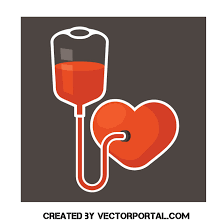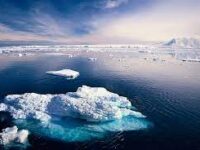Natural disasters not only wreak havoc on communities, but also on the nation’s blood supply.
Floating cars, broken buildings, and contaminated water are just a few of the intense secondary effects that natural disasters leave in their paths. Grieving families, hospital visits, and shattered homes leave communities in an overall state of loss and immense sadness. Natural disasters, such as earthquakes, wildfires, and hurricanes, are tragedies that people all over the world have to suffer through. As natural disasters rage, they are highly disruptive at best, deadly at worst.
Recently, Americans have felt a lot of nature’s fury: Hurricane Idalia, floods in both California and Alaska, Hawaii wildfires, and more. Unfortunately, not only are these events causing severe consequences across the nation, they are also a likely cause of a national blood shortage. According to the Red Cross, “Hurricane Idalia, which struck Southeast this [August], has forced the cancelations or closure of blood drives and donation centers, resulting in about 700 blood and platelet donations to go uncollected.” In addition, natural disasters close schools, businesses, pharmacies, and other places where blood drives tend to happen. As natural disasters often reach a large area and create lasting effects on the population, this creates an extensive period of time where blood collection is simply not an option. This limits the capacity of places like the Red Cross to keep up with the growing need of blood to support medical procedures.
Sadly, the future does not seem too bright. The Red Cross reported in 2022 that there has been a 23% increase in blood drive cancellations since 2013. Due to continued acceleration of population growth and manmade development, as well as the effects humans have induced on climate change, it is expected that there will be more natural disasters coming our way. The World Wildlife Fund agrees that as humans continue to accelerate climate change, this development will continue to worsen and multiply natural disaster occurrences.
Humans and nature are deeply entangled. The way we have lived and continue to live has a profound effect on our world. The increase in climate change encourages natural disasters, which damage the land and our communities. Further, these damages can prevent normal functioning and interfere with necessary processes, such as blood collection. This is one way that these disasters can reach people outside of the span of physical damage.
“The call for climate action and sustainability is becoming more and more crucial to our functioning as a society.”
The call for climate action and sustainability is becoming more and more crucial to our functioning as a society. It is important to recognize the domino effect that climate change can have on both natural disasters and blood shortages.






